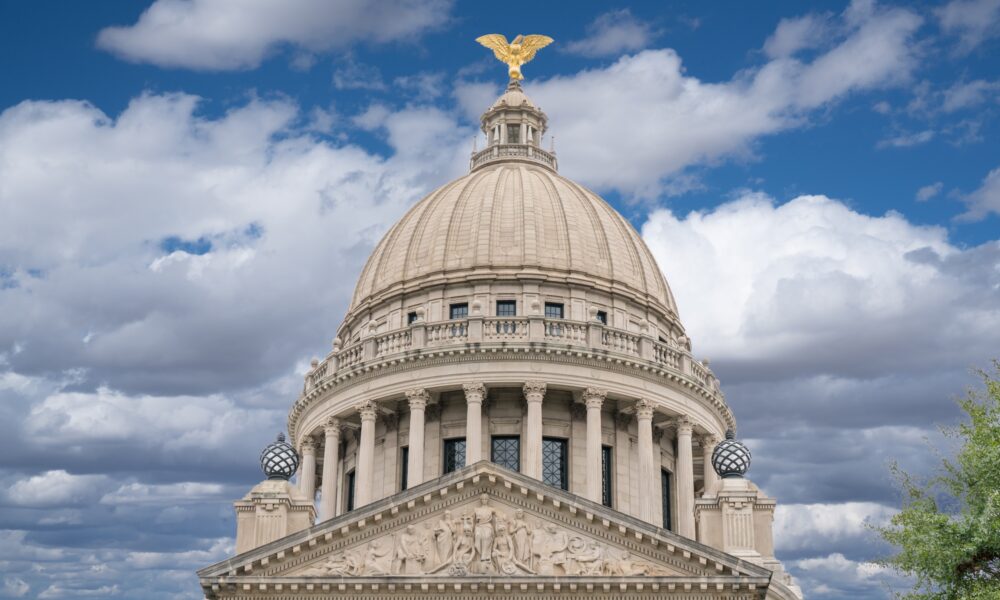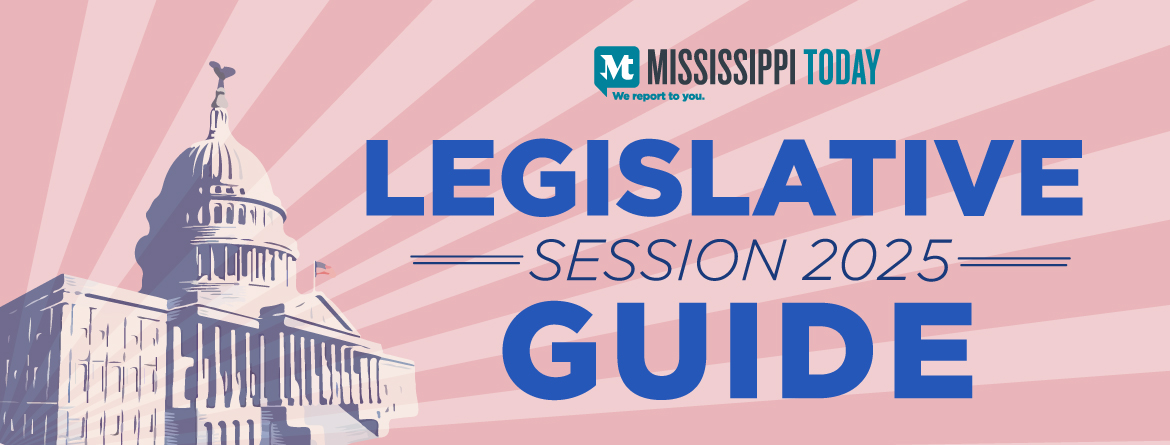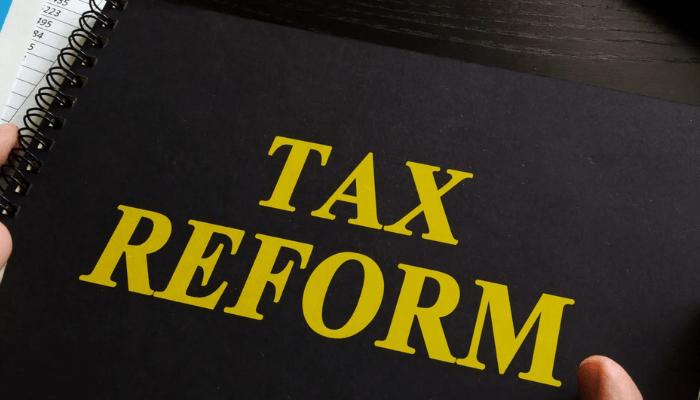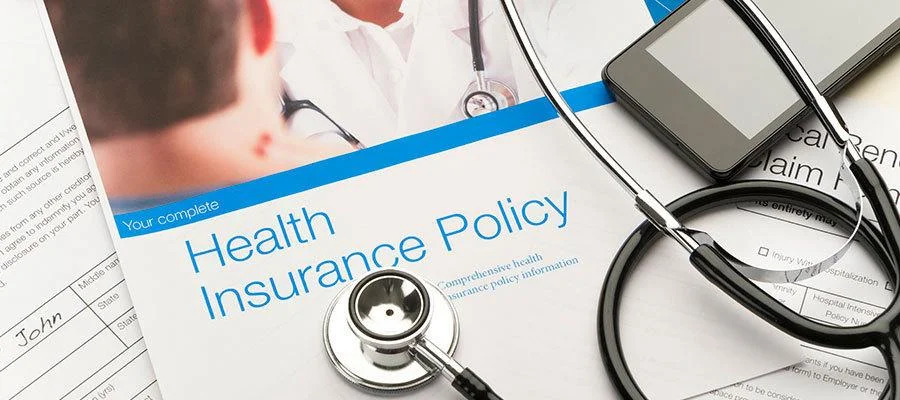Mississippi's 2025 Legislative Agenda - What To Watch Out For
Mississippi's 2025 Legislative Agenda focuses on tax reform, healthcare, education, and voting rights. Learn about the key debates shaping the state's policies and future.
Author:Celeste PearlReviewer:Kelly HayesApr 04, 2025619 Shares10.8K Views

The Mississippi Legislature began its 2025 regular session on January 7, 2025, with numerous consequential issues awaiting lawmakers' attention. This 90-day session, scheduled to conclude on April 6, 2025, represents the second year of the current legislative term and is poised to address pressing challenges ranging from tax reform to healthcare access, education policy, and voting rights.
Republican supermajorities control both chambers, with Speaker Jason White leading the House for his second session and Lieutenant Governor Delbert Hosemann presiding over the Senate for his sixth session.
While thousands of bills will be introduced, several key issues have already emerged as priorities that could significantly impact Mississippi's future. As state lawmakers navigate these complex deliberations, citizens should pay close attention to Mississippi's 2025 Legislative Agenda that will shape the state's direction for years to come.
Political Landscape And Session Overview
The 2025 Mississippi legislative session convenes with Republicans holding overwhelming control in both chambers - 36 of 52 seats in the Senate and 78 of 120 in the House - giving the GOP significant leverage in policy decisions. This session follows the longer 124-day session of 2024 and returns to the standard 90-day calendar, with adjournment scheduled for April 6, though this date could shift depending on legislative progress.
Unlike the 2024 session, which featured extensive organizational activities following the election cycle, the 2025 session can immediately focus on substantial policy matters with committee structures already in place. Speaker Jason White, entering his second session as House leader, and Lieutenant Governor Delbert Hosemann, beginning his sixth session leading the Senate, will guide their respective chambers through the complex agenda.
The legislative dynamic remains defined by occasional tensions between House and Senate leadership, despite both chambers being Republican-controlled. This was evidenced in the previous session by disagreements over Medicaid expansion and tax reform, issues likely to resurface in 2025. These internal party differences could prove consequential for major legislation, particularly as Governor Tate Reeves continues to advocate for his own priorities, sometimes at odds with legislative leadership.
Legislative Process And Timeline
The 2025 session operates under standard legislative procedures, with thousands of bills expected to be filed before committee deadlines. The Center for Mississippi Health Policy notes that the session will progress through established phases: committee consideration, floor votes in the originating chamber, cross-chamber review, and potential conference committee negotiations for bills with remaining differences.
As of late March 2025, numerous bills are already moving through the process, with some awaiting the governor's signature and others in conference committee to resolve differences between House and Senate versions. Citizens can track specific bills through resources like LegiScan and the legislature's website, which provide real-time updates on bill status and amendments.
Tax Reform Proposals
Tax reform stands as a dominant issue for the 2025 session, with competing proposals from House and Senate leadership. Speaker Jason White has articulated a multi-pronged approach that would lower the grocery tax, eliminate the state income tax entirely, and establish a secure revenue mechanism for transportation infrastructure. This builds on the significant 2022 tax cut that created the country's largest income tax exemption among states that tax earnings and established a flat tax rate of 4% (reduced from 5%).
Governor Tate Reeves has aligned with House leadership on income tax elimination, making this a priority of his administration. However, Lieutenant Governor Hosemann has taken a more measured approach, supporting grocery tax reduction but expressing reservations about complete income tax elimination, highlighting the Senate's consistent position in previous tax reform debates.
A potential compromise might emerge around modifying the state's sales tax structure. Sources indicate lawmakers could consider eliminating the current municipal sales tax diversion that comes from the state's 7% rate and replacing it with a designated 1.5% local sales tax. This would address concerns about municipal revenue while potentially creating fiscal room for both grocery tax and income tax adjustments.
The debate occurs against a backdrop of better-than-expected state revenue collections, which have exceeded projections even as tax rates have gradually decreased. This favorable fiscal situation provides momentum for tax reduction advocates but also raises questions about sustainable funding for essential government services in the event of economic downturns.
Healthcare Policy And Medicaid Expansion
The Ongoing Medicaid Expansion Debate
Medicaid expansion continues to be one of the most significant and contentious issues facing the Mississippi Legislature in 2025. The 2024 session marked a historic moment when the House passed its first-ever Medicaid expansion program, only to have the effort stalled in the Senate. This year, both chamber leaders have signaled their intention to revisit the issue, though with different approaches to program design.
Senate leadership under Lieutenant Governor Hosemann has made clear they will only consider proposals that include "ironclad" work requirements for recipients, mandating that beneficiaries either maintain full-time employment or actively seek full-time work. This position may find more federal support under the incoming Trump administration, which previously approved state work requirements during Trump's first term.
Meanwhile, House Speaker White has indicated continued interest in expansion but has been less specific about the House's approach for 2025. The broader context remains that Mississippi is among a shrinking minority of states that have not expanded Medicaid under the Affordable Care Act, potentially forgoing billions in federal dollars that could support healthcare for the working poor.
Other Healthcare Initiatives
Beyond Medicaid expansion, several other healthcare proposals are advancing through the legislature:
Mississippi's Department of Health is seeing changes to certain contracting procedures related to the Public Health Laboratory, with HB1094 moving through the process. Additionally, HB807 establishes a Division of Autism Services within the Department of Mental Health, representing a specialized approach to addressing the needs of Mississippians with autism spectrum disorders.
Certificate of need (CON) reform has emerged as another key healthcare issue. House Public Health Chairman Sam Creekmore IV is championing efforts to ease restrictions that require healthcare facilities to obtain state approval before adding new services. Proponents argue that the current time-consuming application process hinders the development of needed medical services, particularly in underserved rural areas.
The legislature is also addressing specific healthcare regulations through measures like HB674, which would create an Interstate Dental and Dental Hygiene Licensure Compact to improve professional mobility across state lines. Similarly, HB1062 would authorize dental hygienists to provide services to patients under general supervision of dentists under certain conditions, potentially expanding access to preventive dental care.
Education And School Choice
Education policy represents another major focus area for the 2025 session, with school choice emerging as a particularly divisive issue. Speaker White has signaled his support for expanding school choice legislation, which would allow families to use public education funds for various options, including private schooling. This position aligns with certain special interest groups advocating for greater parental control over educational decisions.
The push for school choice could create significant tension with public education advocates and potentially with Senate leadership, which has historically shown more caution on this issue. Currently, Mississippi does not have comprehensive school choice legislation in place, making this a potentially transformative debate for the state's education system.
Proponents of school choice argue these policies would improve academic outcomes and provide parents with greater autonomy over their children's education. Critics counter that such programs would divert critical funding from already underfunded public schools to private institutions that may have limited accountability and oversight.
Higher Education Funding
College affordability also appears on the legislative agenda, with proposals to expand the state's financial aid programs for the second consecutive session. Higher education advocates are requesting that lawmakers double the funding for the Mississippi Resident Tuition Assistance Grant program and extend eligibility to adult and part-time students who have historically been excluded from state aid.
The primary obstacle to this expansion is its estimated $31 million annual cost, representing more than a 50% increase in Mississippi's current financial aid spending. Legislators must weigh this significant investment against competing budgetary priorities and the state's overall fiscal capacity.
Public Employee Retirement System Reform
The financial health of Mississippi's Public Employee Retirement System (PERS) continues to be a critical concern for lawmakers in 2025. Last year, the legislature provided a $110 million cash infusion to help shore up the massive retirement system that serves state employees, local government workers, and school personnel from kindergarten through higher education.
However, many financial analysts argued that this amount fell short of what's needed to ensure the system's long-term viability. The 2025 session is expected to feature discussions about additional funding to strengthen PERS' financial position and potentially structural reforms to the system itself.
One approach under consideration involves modifying benefits for new hires, effectively reducing future obligations while maintaining commitments to current employees and retirees. This strategy could help control long-term costs but raises questions about recruiting and retaining qualified public servants if retirement benefits become less competitive.
The PERS issue illustrates the broader fiscal challenges facing Mississippi, as lawmakers balance immediate needs against long-term financial sustainability. Any significant changes to the retirement system would impact thousands of current and future public employees across the state, making this one of the most consequential debates of the session.
Voting Rights And Democratic Processes
Ballot Initiative Restoration
For the fourth consecutive year, legislators plan to introduce measures to restore Mississippi's ballot initiative process, which was invalidated by the state Supreme Court in 2021. This judicial decision not only overturned a specific medical marijuana initiative but eliminated the entire mechanism for citizens to place issues directly on statewide ballots.
The ACLU of Mississippi has identified ballot initiative restoration as a 2025 legislative priority, emphasizing that "voters deserve an initiative process to protect their interests even if their representative does not". The organization notes that the technical fix could be as simple as updating the number of districts referenced in the law's language.
Despite apparent consensus that the process should be restored, the House and Senate have failed to reach agreement on implementation details during the past three sessions. This continued inaction has frustrated advocacy groups who view the ballot initiative as a fundamental democratic tool that allows citizens to bypass legislative gridlock on popular issues.
Voting Rights Restoration And Reform
Felony suffrage represents another significant voting rights issue expected to receive attention in 2025. House leaders have indicated plans to file legislation creating automatic paths for people convicted of certain nonviolent felony offenses to regain their voting rights. This aligns with the ACLU's call for "automatic restoration" of voting rights and broader voting reforms.
Additionally, voting access advocates are pushing for Mississippi to join other states in implementing online voter registration and no-excuse early voting. The ACLU notes that "Mississippi is the only state whose citizens lack both online registration and no-excuse early voting," arguing this places unnecessary burdens on Mississippi voters compared to citizens in other states.
Legislative Redistricting Requirements
The 2025 session faces a federally mandated responsibility to redraw certain legislative districts after a three-judge panel determined that maps drawn in 2022 diluted Black voting strength.
Specifically, the court ordered the creation of at least two additional majority-Black Senate districts - one in the DeSoto County area of north Mississippi and another in the Hattiesburg area of south Mississippi - plus a majority-Black House district in the Chickasaw County area of northeast Mississippi.
This redistricting process carries significant implications for political representation and legislative control, particularly in the affected regions. The legislature must carefully navigate both legal requirements and community interests while addressing the court's findings of voting rights violations.
Other Significant Issues
Regulatory Matters
Several regulatory issues are advancing through the legislative process. HB913, which requires accurate labeling of meat and non-meat products by processors and retail establishments prior to final sale, has already been approved by the Governor.
Meanwhile, HB916 would require the Commissioner of Revenue to establish separate directories to regulate the sale of cigarettes and vape products.
Age restrictions on certain products are also under consideration, with HB1077 seeking to prohibit persons under 21 from purchasing kratom products and from entering premises of retailers who sell such products.
Workplace Policies
The Mississippi State Employees Paid Parental Leave Act (HB1063) represents a notable workplace policy initiative moving through the legislative process. This measure would create new family leave provisions for state employees, potentially affecting thousands of workers across numerous state agencies and departments.
The Influence Of Political Dynamics
The success of various legislative proposals will be significantly influenced by the working relationship between Governor Reeves, Speaker White, and Lieutenant Governor Hosemann. Despite shared party affiliation, these leaders have occasionally diverged on policy priorities and implementation approaches, as evidenced by previous disagreements on tax reform and Medicaid expansion.
The supermajority status of Republicans in both chambers means that most significant opposition to GOP initiatives will likely come from within the party rather than from the Democratic minority. This intra-party dynamic creates a complex legislative environment where coalition-building often revolves around regional interests and policy details rather than partisan divisions.
With the Mississippi Legislative session now passing its midpoint, the pace of activity is accelerating as bill deadlines approach and priorities become clearer. Citizens seeking to influence the process should maintain awareness of committee schedules and contact their representatives regarding issues of concern.
Staying Informed In The Digital Age
As the legislative session unfolds, citizens must stay informed about developments. However, with the rapid rise in fake news and AI-generated news sources, before you trust a source, be sure to verify that the source is authentic with an AI checkerand confirm the claims are real. This diligence becomes particularly important when following complex legislative developments that may be misrepresented or oversimplified in certain media outlets.
Frequently Asked Questions
What Are The Key Issues In The 2025 Mississippi Legislative Session?
Key issues include tax reform, Medicaid expansion, education policy, voting rights, and public employee retirement system reform.
How Can Citizens Stay Informed About Legislative Developments?
Citizens can track bills through resources like LegiScan and the Mississippi Legislature's website. They should also verify information sources to ensure accuracy.
What Is The Significance Of The Ballot Initiative Restoration Efforts?
Restoring the ballot initiative process would allow citizens to place issues directly on statewide ballots, bypassing legislative gridlock on popular issues.
How Does The Legislative Redistricting Process Impact Mississippi?
Redistricting affects political representation and legislative control, particularly in regions where voting strength has been diluted.
Conclusion
The 2025 Mississippi Legislative session presents lawmakers with transformative opportunities to address longstanding challenges in healthcare access, tax policy, education, retirement system viability, and democratic processes. The decisions made during these 90 days will have lasting implications for state residents and the economic trajectory of Mississippi.
As competing proposals advance through the legislative process, stakeholders from various sectors will continue advocating for their priorities. The ultimate outcomes will likely reflect compromise between House and Senate positions, with the governor's priorities also influencing final legislation.
Citizens should remain engaged with the legislative process by following bill progress, contacting their representatives, and participating in public forums. The success of the 2025 session will ultimately be measured by its ability to address Mississippi's immediate needs while establishing sustainable frameworks for long-term prosperity and equity.
Jump to
Political Landscape And Session Overview
Legislative Process And Timeline
Tax Reform Proposals
Healthcare Policy And Medicaid Expansion
Other Healthcare Initiatives
Education And School Choice
Higher Education Funding
Public Employee Retirement System Reform
Voting Rights And Democratic Processes
Legislative Redistricting Requirements
Other Significant Issues
The Influence Of Political Dynamics
Staying Informed In The Digital Age
Frequently Asked Questions
Conclusion

Celeste Pearl
Author
Celeste Pearl is an accomplished writer and expert in numerology, astrology, and spirituality.
With a Bachelor of Arts in Journalism and over 6 years of writing experience, Celeste brings a wealth of expertise to her articles, making complex topics accessible and engaging for readers.
Her passion for metaphysical sciences is evident in her insightful content, where she explores the depths of these subjects with clarity and depth.
Beyond her professional pursuits, Celeste enjoys delving into spiritual practices and connecting with nature for inspiration.

Kelly Hayes
Reviewer
Kelly Hayes is a seasoned journalist with over 10 years of experience, specializing in news reporting and horoscope analysis. She holds a Bachelor's degree in Journalism from New York University, enhancing her credibility and expertise in the field.
Kelly's writing style is characterized by clarity, depth, and a commitment to delivering credible information. Her published works across various platforms showcase her knack for engaging storytelling and insightful analysis.
Readers trust Kelly's expertise in both current events and astrological interpretations, making her a sought-after authority in journalism.
Apart from her professional activities, Kelly enjoys exploring new cultures, practicing yoga, and engaging in philanthropic activities.
Latest Articles
Popular Articles



